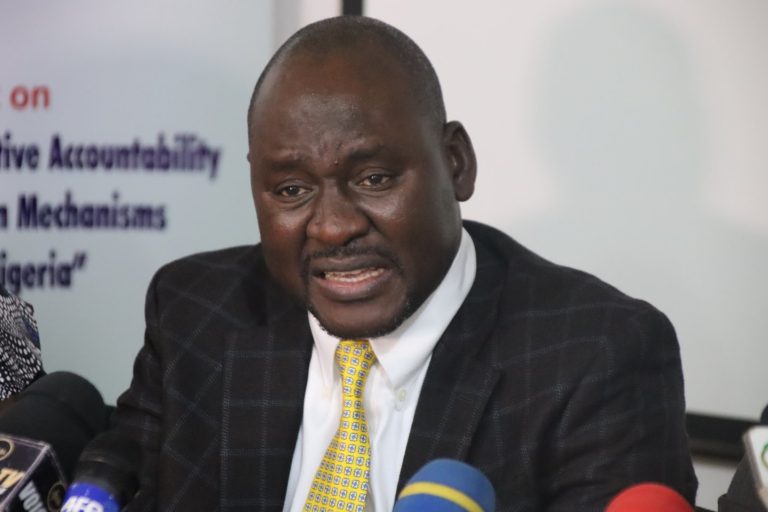From Juliana Taiwo-Obalonye, Abuja
The Supreme Court has been urged by a coalition of Civil Society Organisations (CSOs) to reject petitions brought by 16 Nigerian governors that aim to declare the Nigerian Financial Intelligence Unit (NFIU) and the Economic and Financial Crimes Commission (EFCC) unlawful organisations.
During a news conference in Abuja on Wednesday, the coalition—which consists of 40 CSOs dedicated to good governance and anti-corruption—expressed worries, emphasising that the governors’ actions jeopardise the fight against corruption and threaten local government sovereignty.
Executive Director of the Civil Society Legislative Advocacy Centre (CISLAC) Auwal Musa Rafsanjani expressed alarm over the governors’ legal action.
“These legal battles represent a blatant disregard for the rule of law. They are an attempt to erode the progress Nigeria has made in establishing institutions that hold public officials accountable,” Rafsanjani stated.
“The governors’ lawsuit, which is set for hearing on October 22, 2024, aims to stop the EFCC, NFIU, and other anti-corruption agencies from looking into state and local government funds,” he stated. The governors contend, he said, that these entities are not empowered to give orders about the management and administration of state resources.
“The coalition, however, views this as an attempt to subvert accountability.
“This action by the governors sends a dangerous signal that transparency can be sacrificed for political expediency,” the coalition warned.
The group highlighted that these governors are relying on “legal technicalities” to challenge the legality of the EFCC, an institution established by Nigerian law and recognised for over two decades for its role in combating financial crimes.
According to Rafsanjani, the Nigerian Constitution clearly supports the establishment of anti-corruption bodies. Section 15(5) of the Constitution mandates the state to “abolish all corrupt practices and abuse of power.”
Rafsanjani pointed out that Section 7 guarantees local government autonomy, which the coalition believes the governors are attempting to dismantle through this legal action.
“These governors claim that the EFCC Act did not receive the required approval from state Houses of Assembly,” Rafsanjani continued. “But the EFCC is not a treaty; it is a Nigerian law created to address corruption, a national issue. The constitution empowers the federal government to legislate on corruption, which affects all levels of government.”
The coalition raised concerns about the broader implications of this lawsuit. “If this suit succeeds, it could cripple the anti-corruption fight in Nigeria,” they warned, adding that the country risks being blacklisted by international bodies such as the Financial Action Task Force (FATF), which had already grey-listed Nigeria in 2023 due to concerns about money laundering.
Nigeria’s long-standing fight against corruption was used by the coalition as justification for the creation of the EFCC and other anti-corruption organisations.These authorities, they contend, were established to combat financial crimes that have damaged public confidence and debilitated the economy.
”The EFCC has been instrumental in recovering billions of naira in stolen public funds and securing numerous convictions,” Rafsanjani noted.
The CSOs also condemned the timing of the governors’ lawsuit, suggesting it was a deliberate attempt to shield public officials from scrutiny. “This legal action appears to be designed to prevent anti-corruption agencies from investigating the mismanagement of public resources at the subnational level,” the coalition said.
Finally, the coalition called on all Nigerians to remain vigilant and resist any efforts to weaken institutions that ensure accountability. “A nation without accountability is a nation on the path to moral and economic decay,” Rafsanjani concluded. The CSOs urged the Supreme Court to dismiss the suit, describing it as “frivolous” and a threat to Nigeria’s democratic foundations.
